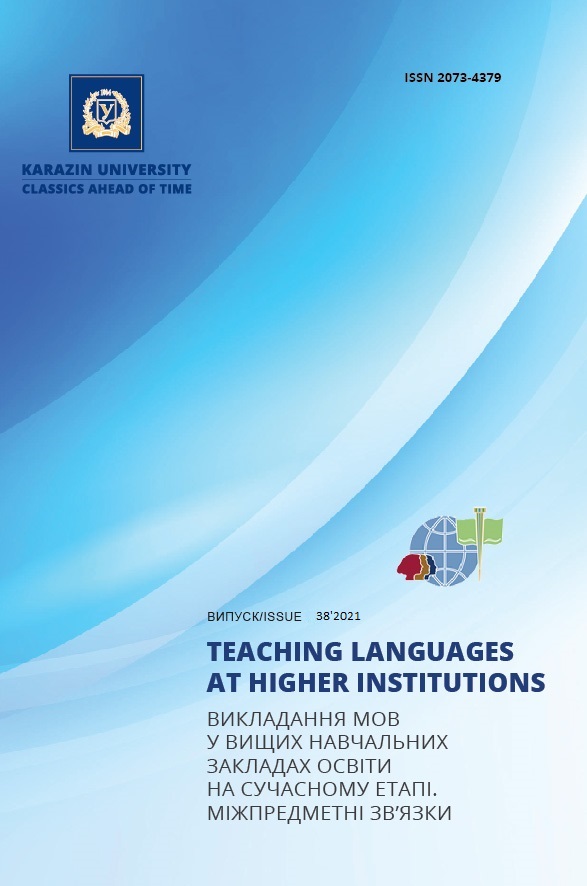Organization of training by cooperation / competition method in foreign language classes
Abstract
The article is devoted to the description of the organization of training in a foreign language according to the method of rivalry / cooperation. The author investigated the possibilities of the practical application of such forms as cooperation and rivalry and their impact on the educational process. The relevance of this problem is due to the need for the search for new ways, methods, techniques for effective training of foreign students, the need to develop optimal technologies for the process of learning a foreign language by using cooperation and rivalry strategies; a lack of fundamental theoretical research and practical developments on the application of cooperation and rivalry in teaching foreign languages. The author studies examples of interactive games that students find most interesting and entertaining and shows various ways of organizing work in small groups. Among the most effective forms of pair and group work are internal (external) circles, brainstorm, zigzag reading, opinion exchange, paired interviews. Technologies of rivalry and cooperation should be used in the educational process in a complementary manner. To successfully form the abilities of oral professional communication, it is necessary to systematically use the entire arsenal of funds and techniques that implement strategies for cooperation and rivalry. The author describes the impact of these methods on the educational process, namely the stimulation of personal, intellectual activity, development of cognitive processes, formation of competencies that the future specialist should have.
Downloads
References
Averyanova, S.V. (2013). Kommunikativnye strategii pri obuchenii ustnomu delovomu obshcheniyu na zanyatiyah po inostrannomu yazyku v vysshej shkole [Communicative strategies in teaching foreign language oral business communication in higher school]. Rossijskij vneshneekonomicheskij vestnik [Russian Foreign Economic Bulletin]. 3, pp. 80−86. Available at: http://cyberleninka.ru/article/n/ kommunikativnye-strategii-pri-obuchenii-ustnomu-delovomuobscheniyu-na-zanyatiyah-po-inostrannomu-yazyku-v-vysshey-shkole [Accessed 03 March 2021] [in Russian].
Mackhonashvili, N.K. (2008). Ob effektivnosti igrovyh zadanij na prakticheskih zanyatiyah po inostrannym yazykam v obshchej sisteme professionalnoj podgotovki bakalavrov (iz opyta raboty so studentami, izuchayushchimi russkij yazyk v Akademii fizicheskogo vospitaniya i sporta Gruzii) [On the efficiency of play assignments during practical classes of foreign languages in the general system of bachelors’ professional preparation (based on the experience of working with students who studied Russian at the Academy of physical training and sports of Georgia)]. Available at: http://cyberleninka.ru/article/n/ob-effektivnosti-igrovyh-zadaniy-na-prakticheskih-zanyatiyahpo-inostrannym-yazykam-v-obschey-sisteme-profescionalnoy-podgotovki [Accessed 10 March 2021] [in Russian].
Kormilina, N.V. and Shugaeva, N.Yu. (Eds.). (2019). Sovremennye metody i tekhnologii prepodavaniya inostrannyh yazykov [Modern methods and technologies for teaching foreign languages]. Cheboksary: Chuvash State Pedagogical University [in Russian].
Lynch, J., Modgil, C. and Modgil S. (2006). Cultural Diversity and the Schools: Vol. 2: Prejudice, Polemic Or Progress? Routledge [in English].
Tomlinson, C.A. (2001). Differentiate Instruction in Mixed-Ability Classrooms. Alexandria: Association for Supervision and Curriculum Development [in English].

